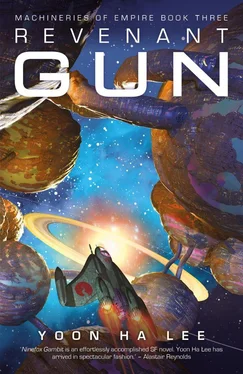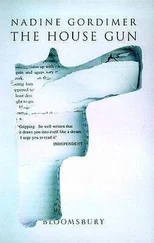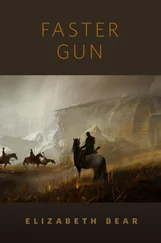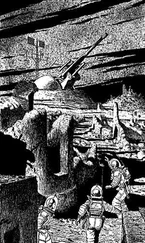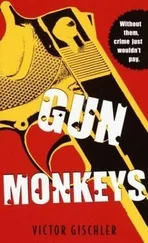Her hair was matted. She might have had pretty eyes once. They were swollen shut by the time I got to her. My friend was right.
Several more columns of text written, then blotted out; the hexarch knew how to redact material so it was unreadable. Then he added, If I’d waited any longer, the city watch would have taken her for cremation. One of the local fruit peddlers who’d seen me with her earlier finally told me where the beggars’ association had abandoned her. I sat and held her hand until she stopped breathing. Toward the end, she was babbling at me in one of the local low languages. I just made reassuring noises because that was all there was left to do.
We are a nation of thousands upon thousands of worlds, and we can’t prevent a child from starving to death right next to one of our faction academies.
The page looked as though it had been crumpled. Even though it knew better, Hemiola caught itself trying to smooth the paper out. The image, of course, was amenable to no such thing.
“Jedao,” it said, “you had better see this.”
After reading the page, Jedao sat in silence for a time. Eventually he said, “This sister of his. I wonder what happened to her, and why he never spoke of her. It’s not the question I thought I was going to be asking.”
“There are going to be a lot more of those,” 1491625 said.
“Maybe that was what drove him to become heptarch,” Hemiola said, “in a world long ago.”
“Yes,” Jedao said. “In all the years I’ve known him, I never would have guessed. I’m starting to think I never understood him at all. And now we have to figure out what he’s been thinking all this time, what his plan for the heptarchate was, before it’s too late for the rest of us.”

CHAPTER SEVEN
WHEN NIRAI KUJEN returned the next day, Jedao and Dhanneth were taking a break with a game of jeng-zai. Jedao had asked Dhanneth to check his plan for the first battle, and then the two of them had looked over the logistics. Among other things, Jedao couldn’t help wondering if all majors were this well-versed in tactics, or if Kujen had picked him an unusually competent aide. There was no tactful way to ask, so he didn’t. Dhanneth had told him that the staff should double-check the details, but Jedao felt better having Dhanneth’s opinion nonetheless, and Dhanneth had improved the presentation. In the course of the discussion it had emerged that Dhanneth played jeng-zai and had brought a deck with him. Jedao was beating Dhanneth, but he was putting up a good fight.
“Don’t yell at the major,” Jedao said quickly when Kujen peered at his hand. “It was my idea.”
“Not that,” Kujen said, and riffled through the unused portion of the deck until he came up with a card. He showed it to Jedao: the Deuce of Gears, silver on a black field, like everything else in the Gears suit.
Jedao was watching Dhanneth out of the corner of his eye. Dhanneth’s shoulders tensed at the sight of the card as though—as though what? It wasn’t even a particularly unlucky card. “Cog in the machine” was what it connoted.
“Not familiar?” Kujen said.
“Should it be?” Jedao said, continuing to watch Dhanneth in his peripheral vision.
Kujen made a moue. “That’s gone too? You took a variant of it as your emblem, once upon a time.”
“Nirai colors, though?”
“You registered yours in gold gears on a red field,” Kujen said. “Quite fetching. You used to show me a whole routine of stupid card tricks based around it.”
That made more sense: Shuos colors. He didn’t know what to make of the card tricks, though, which he didn’t remember either, so he didn’t respond to that part. Certainly he couldn’t imagine himself amusing a hexarch, of all people, with something as trivial as magic tricks. “Should we switch it back to Nirai colors, considering...?”
“Nice thought,” Kujen said, “but it’ll be more intimidating in its historical form, so you ought to stick to the gold and red. I’ve scheduled a meeting with the Kel. Conference in person with your staff heads, tactical group commanders, and infantry colonels, plus the rest of the commanders in the rear. You’ll be able to hold virtual conferences with them after we get underway, of course.”
Jedao was halfway convinced that all that existed of the universe was this suite. If he stepped outside, he would fall into an infinite cushioning darkness.
The conviction must have shown in his face. Kujen said, “I wasn’t keeping you prisoner out of spite. Given your notoriety, I thought it best for you to be kept away from random Kel, or assassins for that matter, until you got your bearings. Any idea what you’re saying to your officers?”
“Yes,” Jedao lied. He had a speech; had even run it by Dhanneth. The original one had been no good, so he’d scrambled to write an appropriate substitution.
“I still think you should wear your medals, sir,” Dhanneth said.
Jedao had originally demurred on the grounds that the last thing a mass murderer should flaunt was a bunch of medals for things he couldn’t remember doing. If Dhanneth was bringing it up in front of Kujen, however, he felt strongly enough about the matter to corner him into it. Jedao looked at him with renewed respect.
Kujen figured it out immediately. “The major is right, you know. The Kel will respond better if they see that you take pride in your rank.”
That was perilously close to what Dhanneth had said, although Jedao hadn’t believed him. “I didn’t see any medals when I searched the drawers,” Jedao said, “and I wouldn’t know how to put them in the right order.”
“Your uniform does that for you,” Kujen said. “It reads the record out of your profile. No, really. Direct it to enter full formal, medals included.”
Jedao did so and was treated to the bizarre sight of his uniform changing, down to the sudden appearance of rows of medals beneath the general’s wings and Shuos eye. “I bet this makes for some interesting pranks,” he said.
“You’re not the first person to think of that. There’s some crypto involved so that people can’t randomly impersonate people, but the augment takes care of that so you don’t have to think about it.” Kujen looked Jedao over critically, then nodded. “It’ll do.”
After an abbreviated breakfast, they set out for the conference. “Try to keep up,” Kujen said, “since you’re not used to variable layout.”
“Variable what?”
“It’ll make more sense when you experience it.”
Jedao wasn’t sure what he had expected the halls of a Nirai station to look like. Gray and sterile, perhaps. He should have figured that a Nirai station hosting the Nirai hexarch himself would pay tribute to Kujen’s love of fine things. Ink paintings on heavy silk depicted birds in migration, only when he looked more closely, the black strokes that formed the birds’ wings were composed of tiny, impressionistic moths. The halls abounded with displays of orreries and astrolabes, abacuses with beads of jade and obsidian. And they were walking on carpet, iridescent gray with patterns on it in paler pearly gray, with pile so deep that if you lost a toe in it you’d never see it again.
More alarming was the fact that they were walking down an infinite corridor, which had no apparent end or, when Jedao glanced back, beginning either. He couldn’t see far into the distance, as though moisture hazed the air. The others’ unconcern told him this was nothing new, but he didn’t like it.
That wasn’t all. Jedao had a sudden sense of the whereness of the station and everything in it, based not in vision but on concentrations of mass. Kujen and Dhanneth appeared in this othersense just as they did in Jedao’s ordinary sight. Their surroundings, though, were confusingly knotted, as though spacetime itself was warped between two disparate points.
Читать дальше
